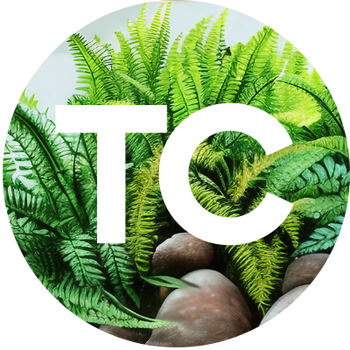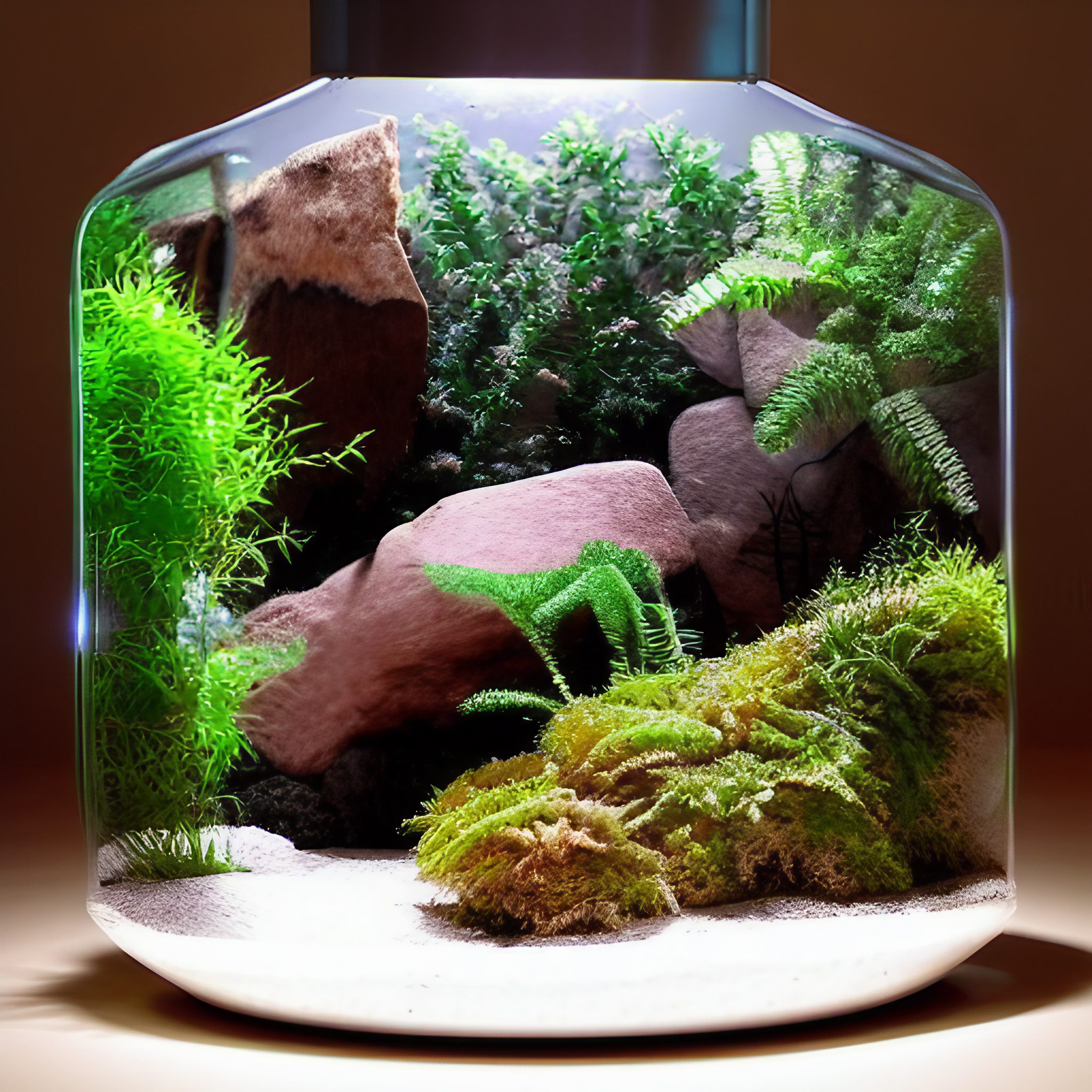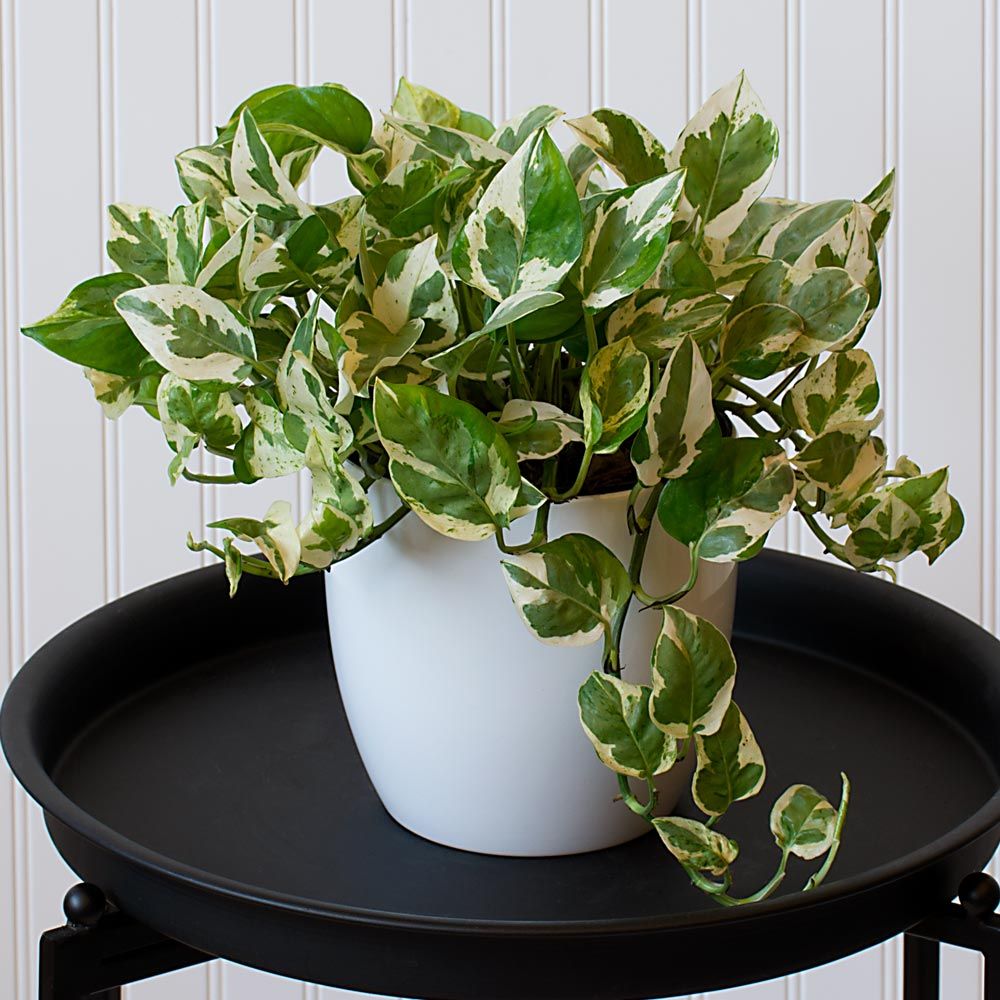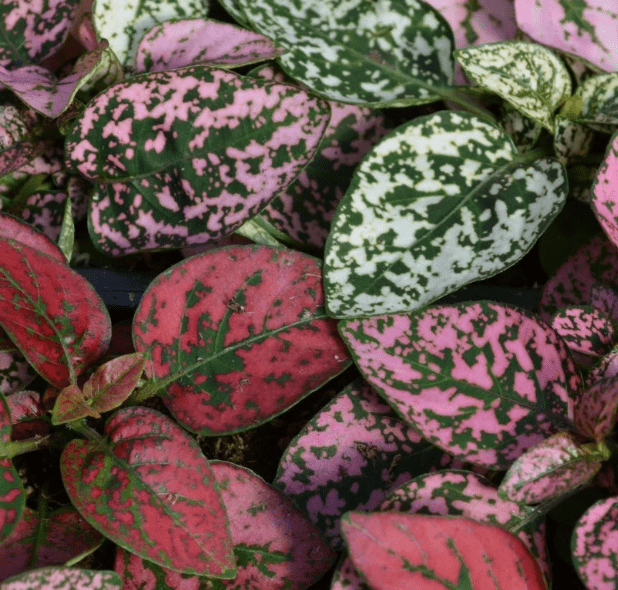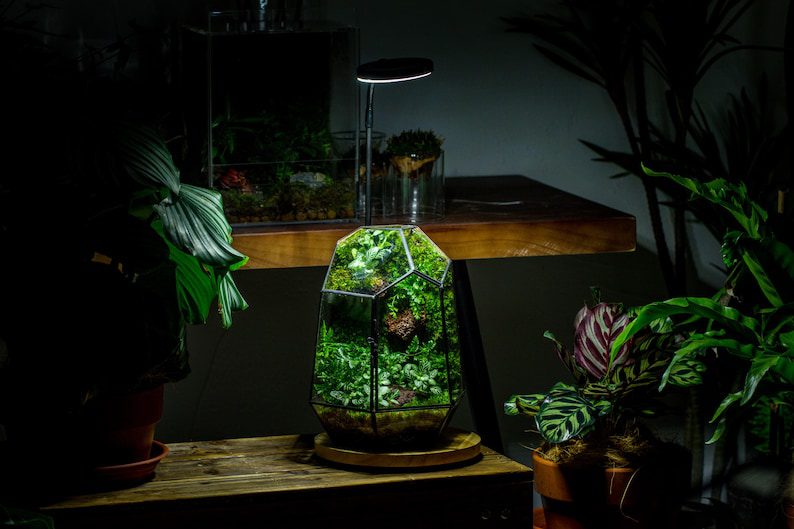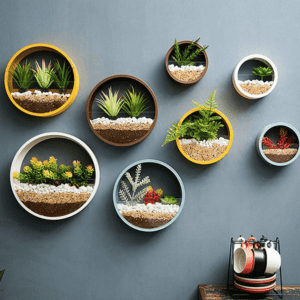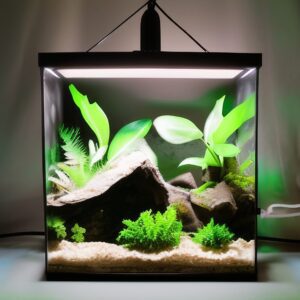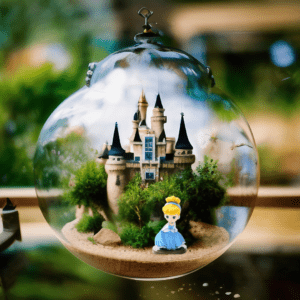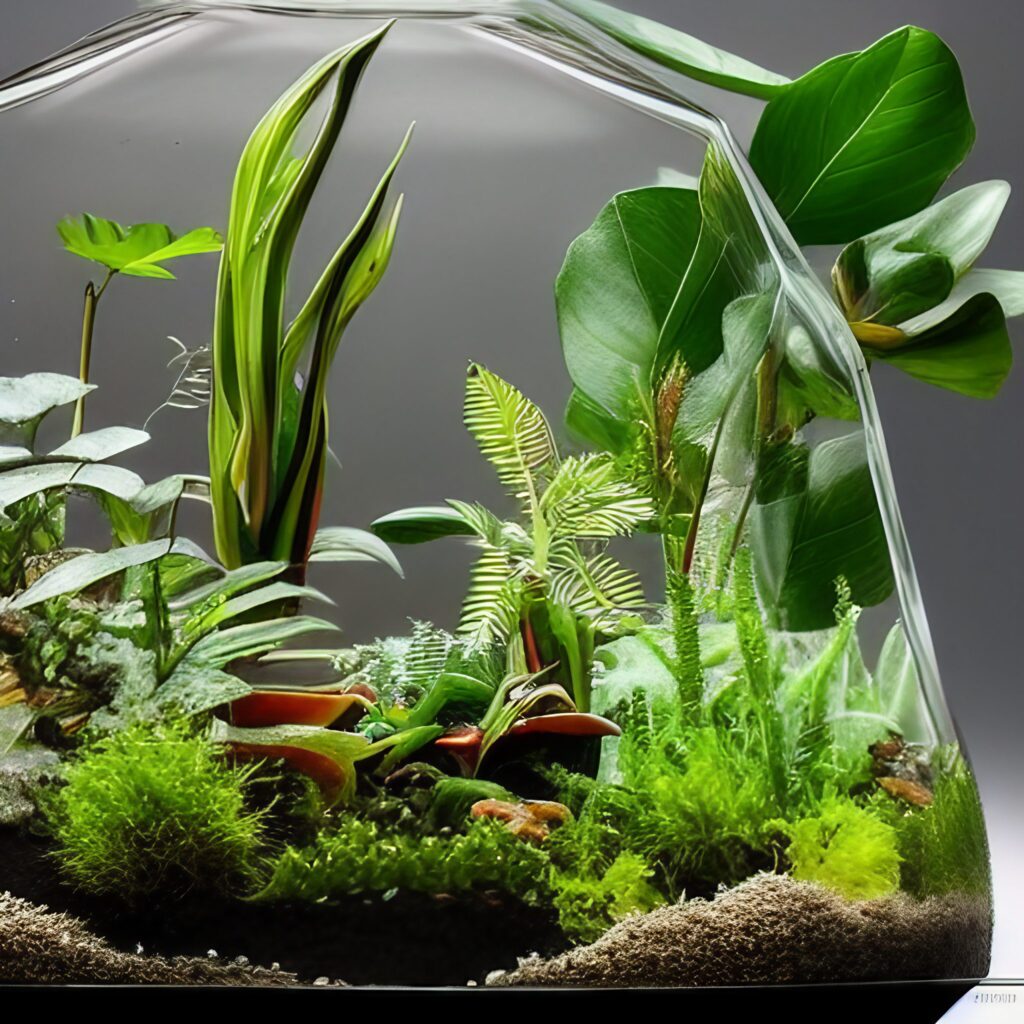
Some quick tips and information on how to pick the best terrarium plants for your terrarium, and some other things to consider when creating your terrarium.
What characteristics do terrarium plants need to have?
When choosing plants for your terrarium, it’s important to pick ones that will thrive in the enclosed environment.
- Look for plants that are small, slow-growing, and low-maintenance.
- Avoid plants that require a lot of sunlight or water, as they may not do well in a terrarium.
- For closed terrariums, be careful to avoid plants that don’t do well in a humid enviornment.
- When selecting plants for an open terrarium, you have a bit more leeway. Just about any plant that is small and slow-growing will do well, as long as it doesn’t require too much sunlight or water.
What are some easy to care for terrarium plants?
One of the best things about terrariums is that they can be tailored to your specific plant needs and preferences. Whether you’re looking for low-maintenance plants or something to add some color to your space, there are plenty of options to choose from. Here are some popular plants for terrariums:
Pothos – Pothos is a great option for those who are looking for a low-maintenance plant. It’s also a great choice if you have pets, as it is non-toxic to both dogs and cats. Pothos is a fast-growing plant that can tolerate low light conditions, making it ideal for terrariums.
Boston Ferns – Boston ferns are another great option for terrariums, as they are low-maintenance and can tolerate low light conditions. There are many different types of ferns to choose from, so you’re sure to find one that fits your needs.
Fittonia – Fittonia is a tropical plant that can be grown as a houseplant in terrariums. It has beautiful leaves with red, white, or pink veins.
If you’re looking for the best plants to put in your terrarium, be sure to check out our Terrarium Plant Library.
Where can I buy terrarium plants?
If you’re looking to buy terrarium plants, there are a few places you can go. You can purchase plants online from websites like Etsy, Amazon or eBay, or you can purchase them from local garden stores.
What should I consider when choosing terrarium plants?
When choosing plants for your terrarium, it’s important to consider:
Climate, lighting, temperature
When choosing plants for your terrarium, it’s important to consider your climate and where the terrarium will be placed. Avoid direct sunlight, as terrariums can heat up quickly. Temperature is also important to consider and keep consistent. Temperature will be greatly affected by lighting and placement.

Watering
When choosing plants for your terrarium, it’s important to consider your watering needs. Closed terrariums can be self sustaining, but will require the occasional misting. Open terrariums will require regular watering.
Budget
When choosing plants for your terrarium, it’s important to consider your budget. Some plants can be more expensive than others, so it’s important to find ones that fit your budget.
Time commitment
When choosing plants for your terrarium, it’s important to consider your time commitment. Some plants require more care than others, so it’s important to find the plants that suit your maintenance preferences.
Choosing the right terrarium container
Once you’ve decided on the plants you want, the next step is to choose the right container. Glass containers are popular choices for terrariums, as they allow you to see the plants inside and create a beautiful display. However, plastic containers can be a great option as well, especially if you’re looking for a more budget-friendly option.
Ensuring adequate drainage
Once you’ve chosen your container, the next step is to add some drainage. This can be done by adding a layer of gravel or rocks to the bottom of the container. Doing this will help to prevent the roots of your plants from rotting.
Using the right growing medium
After you’ve added drainage to your container, it’s time to add some soil. For terrariums, we recommend using a light and airy potting mix. This type of soil will help to ensure that your plants have enough room to grow.
Placing plants strategically
Once you’ve added drainage and soil to your container, you can start adding plants. When adding plants to your terrarium, it’s important to consider the size of the container and the size of your selectedplants. You don’t want to overcrowd the space, as this can lead to problems with growth. Once you’ve added all of your plants, you can add some rocks or moss to the top of the soil to create a more natural look.
Read more about how to care for terrariums on our terrarium care guide page.
Ideas and Inspiration – Terrarium Plant Library
If you’re looking for the best plants to put in your terrarium, be sure to check out our terrarium plant library. This online library features a variety of plants that are perfect for terrariums, including pothos, ferns, moss, succulents, and air plants. You can also find helpful tips on how to care for your plants and keep your terrarium looking beautiful.
